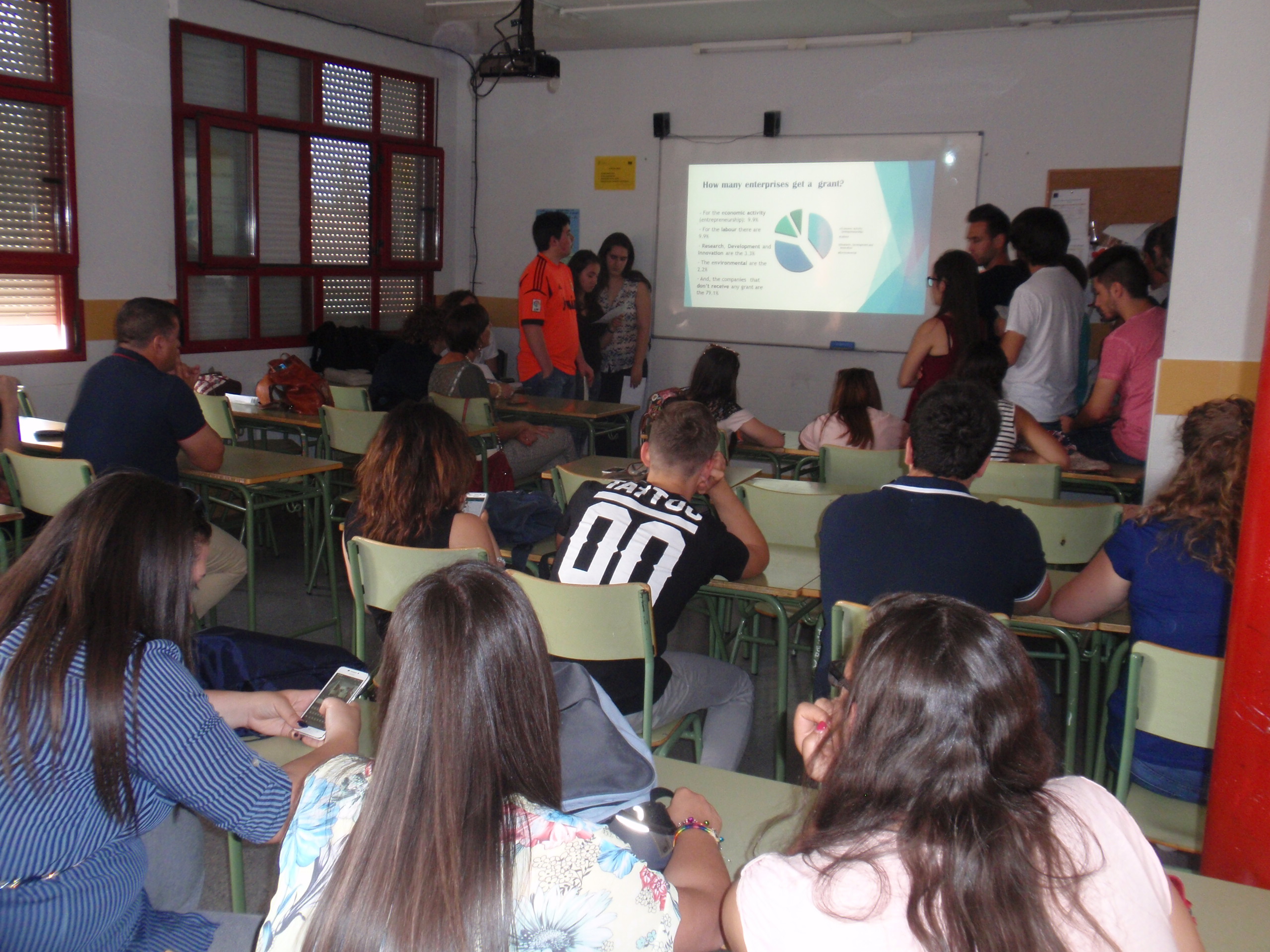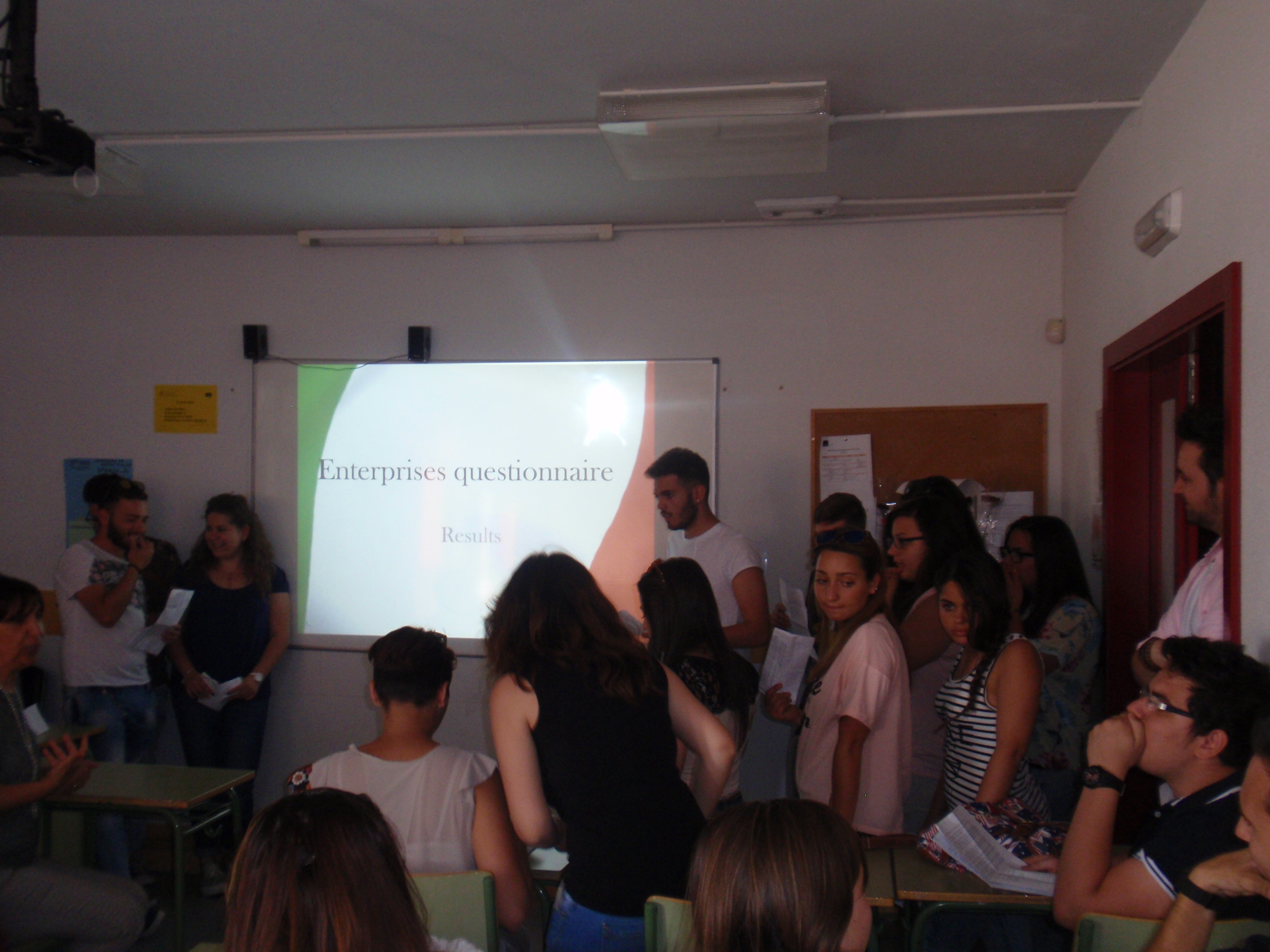During the mobility of Italian students to Spain, all of involved students in the project shared their results and they were introduced to others students belong to IES Julián Zarco.


Students have obtained the following conclusions about their local business studies:
1º More than half business from Nola and Mota del Cuervo belong to terciary sector.


2º Concerning the size of the business: Nola has medium businesses, however Mota del Cuervo has small firms.


3º Most of business from Nola are corporates, especially SRL, however in Mota del Cuervo there are more individual business.


4º The majority of employees from both cities have permanent contracts.


5º A big percentage of business from both cities don't obtain any grant.

6º Employers consider that in their city there aren't regulations of the public administration that interfere with their business activity, however Italian companies consider that the public administration encourage the business activities while Spanish companies consider it doesn't it.


7º The businesses of both cities share the idea that during the last 10 years the sector has grown and after has decreased.


8º The main clients for these businesses are usual consumers.


9º Most of firms don't export to other countries.


10º Italian firms import to other countries more than Spanish businesses.


11º Italian and Spanish businesses have some ecological factors into account to develop their activity, however the Italian firms consider their main ecological factor is reducing while Spanish firms use more recycling.


12º The vast majority uses Internet at the job, especially ADSL.


13º Most of Italian companies have a website, however more than half Spanish firms don't have a website.


14º Italian and Spanish emplorer have some profile on a social network, especially on Facebook.


15º Italian and Spanish companies don't perform e-commerce transactions.


16º More than half Italian companies earmark some percentage of their benefits for R+D+i however most of Spanish firms don't assign any percentage.


17º Concerning tax burdens, Italian and Spanish companies must pay for VAT and Income taxes.
